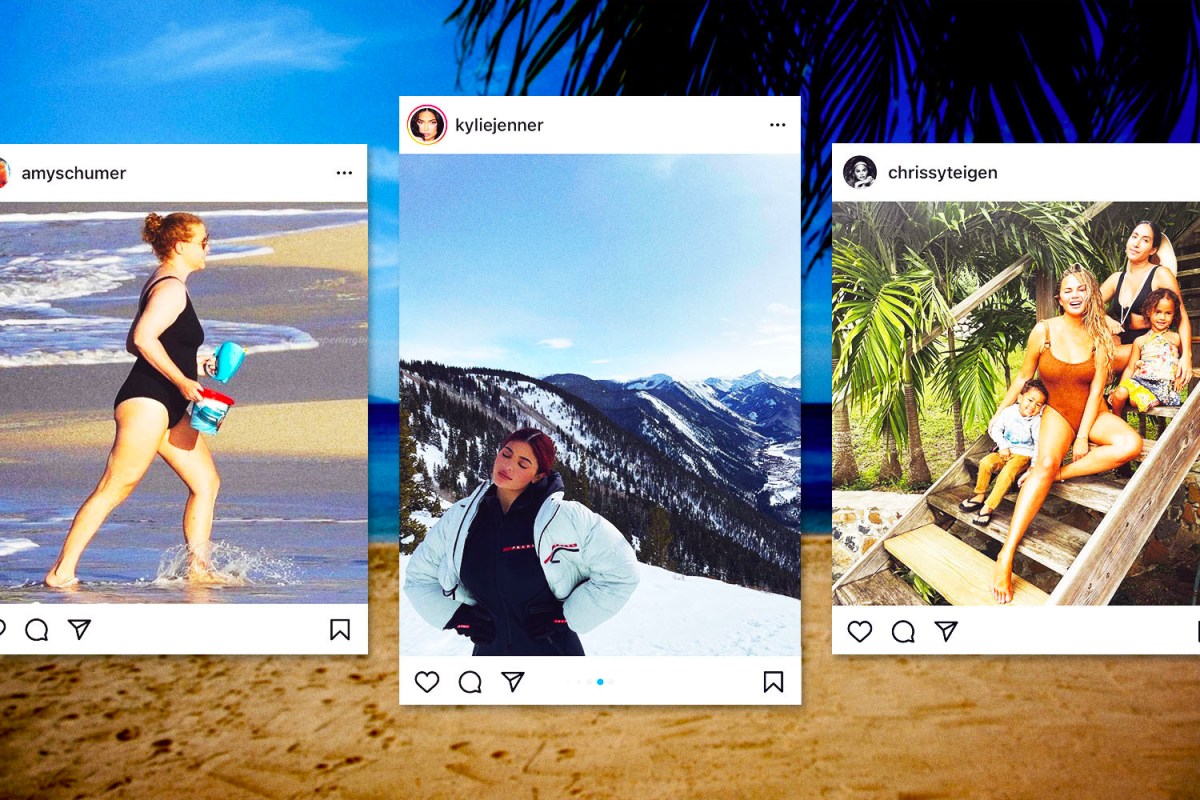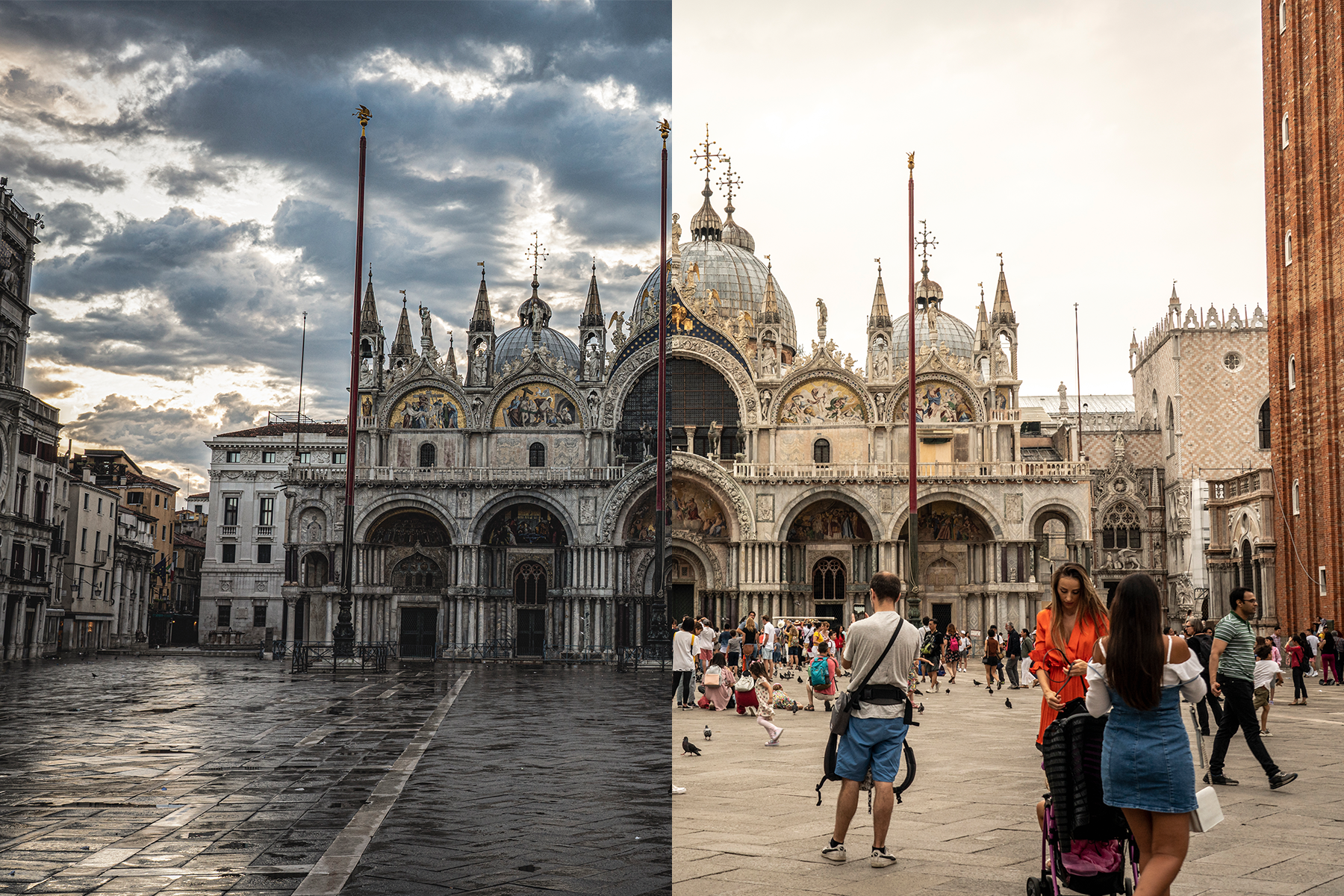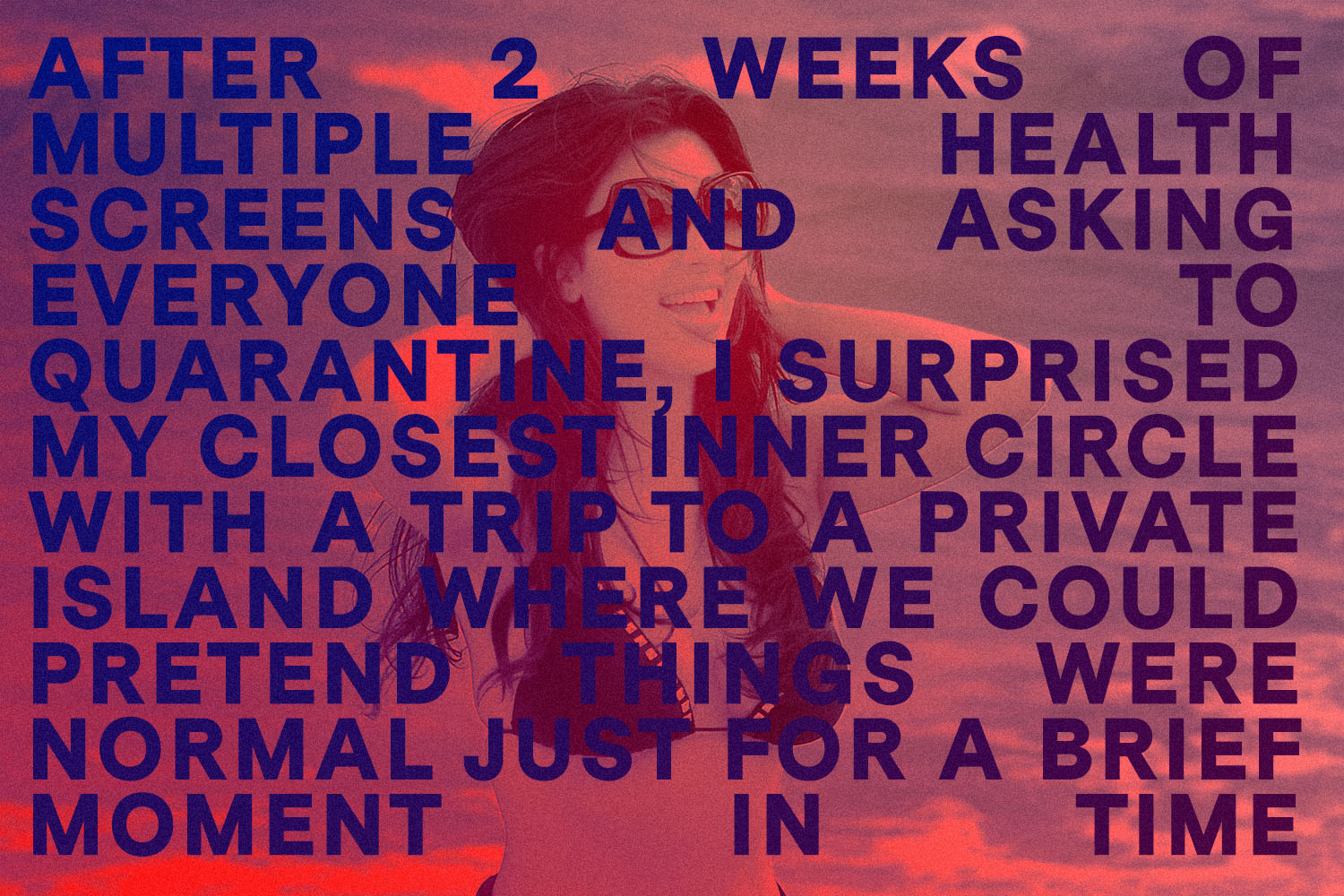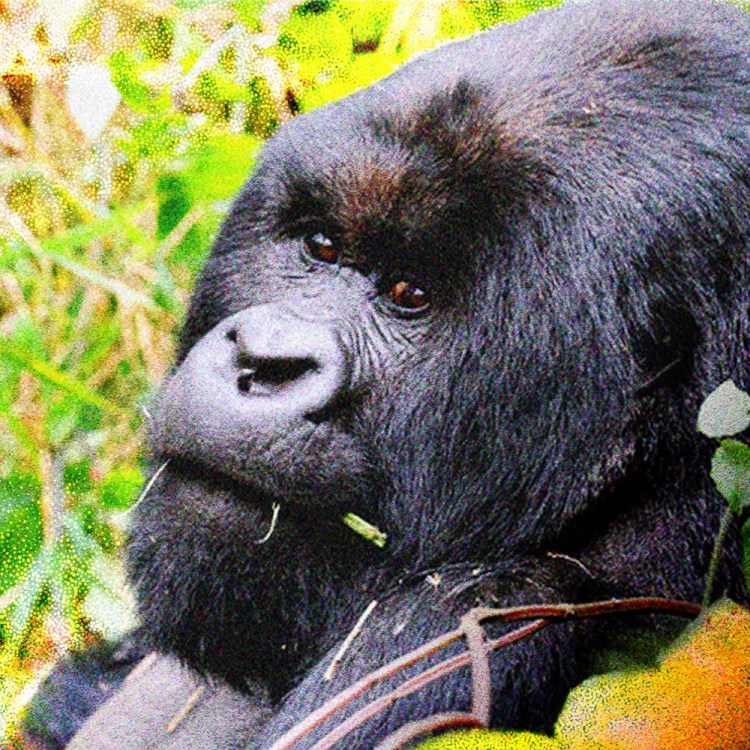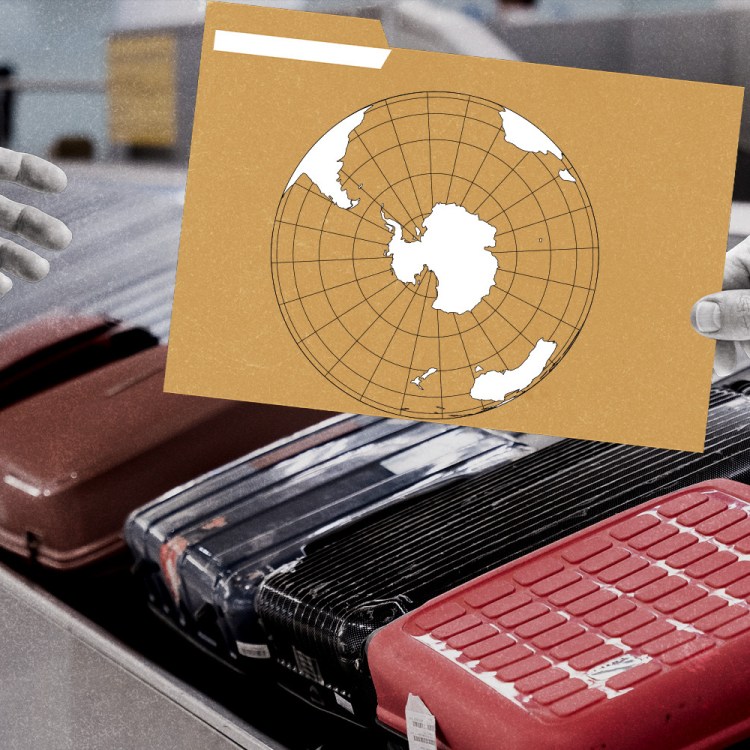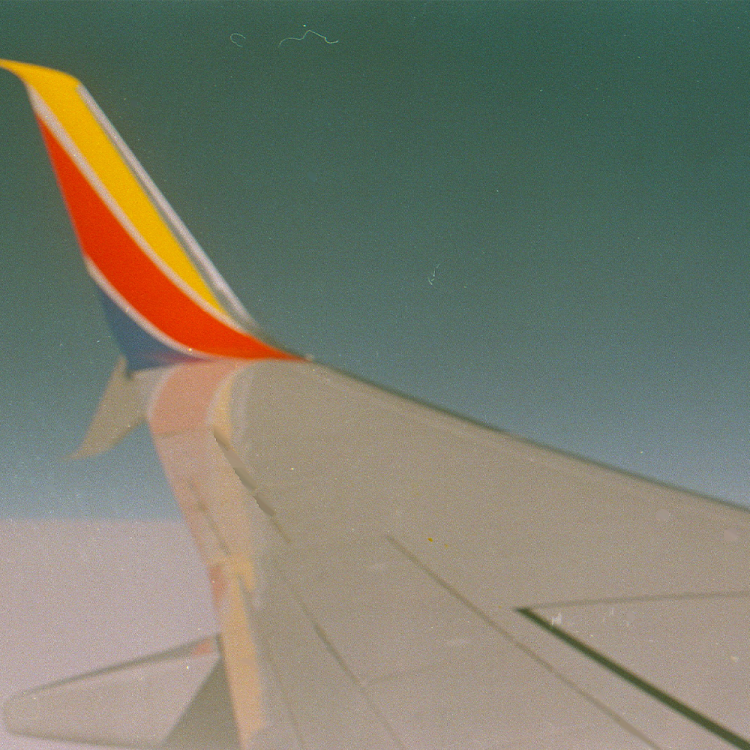Last summer, Kylie Jenner shared an Instagram photo of her pouty self (without a mask, naturally) standing in front of a church in Paris.
Many wondered how that was possible. The European Union has now been closed to American travelers for almost a year; it will reopen to vaccinated people for the first time since last March this month. But those who travel by private jet have a way of finding loopholes — Chrissy Teigen, Amy Schumer and Cardi B were all lambasted for traveling during the pandemic, too.
In truth, it wasn’t traveling, writ large, that got those celebrities and others into hot water. It was traveling and then posting photos of it online.
While Instagram has long been the channel of choice for showing off glamorous vacations to the four corners of the world, it’s now become something to hide. Though 39% of Americans have been vaccinated as of this writing, that’s not true across the globe (in Europe, for example, only around 18% of people are vaccinated). In light of those figures, travel photos have become distinct markers of privilege, a way of differentiating the literal haves from the have nots.
After so many high-profile gaffes from celebrities and influencers and parts of the world still under lockdown, it’s becoming clear that a vaccination alone does not give you license to flaunt photos of yourself with impunity. So what’s acceptable, etiquette-wise? According to social-media experts like Matthew Karsten, a travel blogger and the photographer behind Expert Vagabond, it’s all about context, with so-called #travelgram shots increasingly replaced by experiences that are more modest, relatable and close to home.
“Sharing travel photos on Instagram isn’t going away anytime soon,” said Karsten. “I think there may be far less of it for a while, but many people are itching to start traveling again as soon as it is safe to do so.”
According to Diane Gottsman, an etiquette expert, it’s not only the photo you post. You also need to consider how the photo caption can be read by your followers: if your tone is sarcastic, for example, you should make that clear by adding an emoji; if you’re posting an old photo from a pre-COVID vacation, say so.
Of course, the tourism industry itself will also play a big role in whether and when it’s acceptable to resume your jet-setting. Countries have been reopening for travel and flaunting it through their tourism boards, from Turkey (which faced backlash for a recent travel video welcoming foreigners) to Japan to Egypt, where newly unveiled ancient finds are hoping to rekindle the influx of vacationers. In Thailand, the local tourism board in Phuket is even offering hotels for $1 a night to bring back tourists.
“Plenty of countries rely heavily on tourism to support their economies and want to open their borders to tourists ASAP,” said Karsten. “It’s going to be a fine balancing act moving forward, and we’ll all have to determine for ourselves what we feel comfortable sharing, or not, on social media.”
In other words, even as borders reopen, travelers should be wary of documenting their adventures on Instagram, especially in the post-pandemic environment. Will travelgramming return at some point, or is this the new order of things?
There has been huge backlash against high-profile individuals, like Kim Kardashian’s elaborate private-island birthday bash in October, where she captioned photos with such enlightening reflections as being “humbly reminded how privileged” her life is. Needless to say, a meme roast followed on Twitter.
The whole fiasco was filmed on Keeping up With the Kardashians, where it was revealed that she and her children tested positive for COVID-19 roughly 10 days after her trip and had to self-quarantine. The star denied a correlation between the outbreak and her vacation on Twitter, saying that her son contracted it at school.
Of course, she’s not alone. This winter, British reality stars were lambasted in tabloids for jetting to tropical destinations for luxury vacations, going so far as to claim they weren’t taking vacations, but “working” — as evidenced by the brands they tagged in their sponsored posts as they caroused in five-star hotels and nightclubs.
Another new rule in the unwritten social-media etiquette book is to refrain from geotagging posts altogether. Some say that geotagging promotes over-tourism, especially in landscapes where too much foot traffic has an outsize impact on the environment. In one recent example, Horseshoe Bend in Colorado went viral and found it difficult to control the masses trampling the local wildlife.
Despite benefiting from it, Karsten questions whether social media is ruining travel, specifically with regards to over-tourism. Then, it’s always been like this in some places. People have been holding up the Leaning Tower of Pisa for over 30 years, says Karsten. The only difference is that now, our travel photos are public, rather than hiding away in the pages of a family photo album. Which is why ultimately — despite some travelers choosing to be more selective with how they choose to represent themselves online — you shouldn’t expect the trend to last.
“I’ve asked my own audience what they’re planning on doing, and it seems to be a pretty even mix between people choosing to travel domestically this summer and those who are going to take an international vacation to a country which has officially opened its doors for tourists,” Karsten says. “But I feel most of them, whatever they decide on, will want to share on Instagram.”
This article appeared in an InsideHook newsletter. Sign up for free to get more on travel, wellness, style, drinking, and culture.
